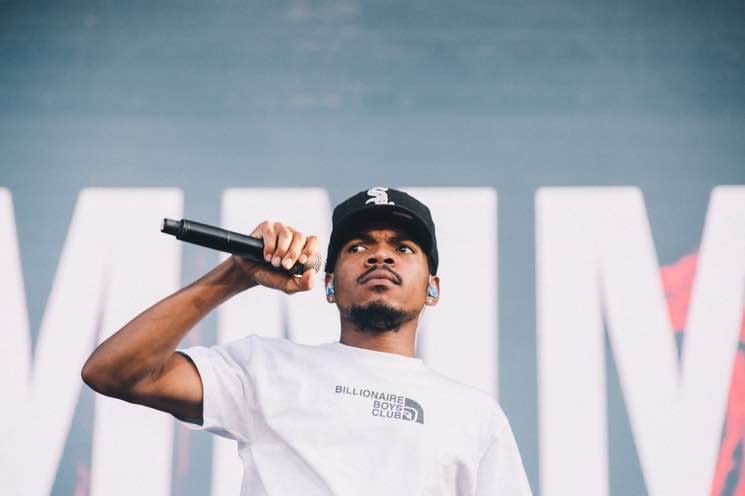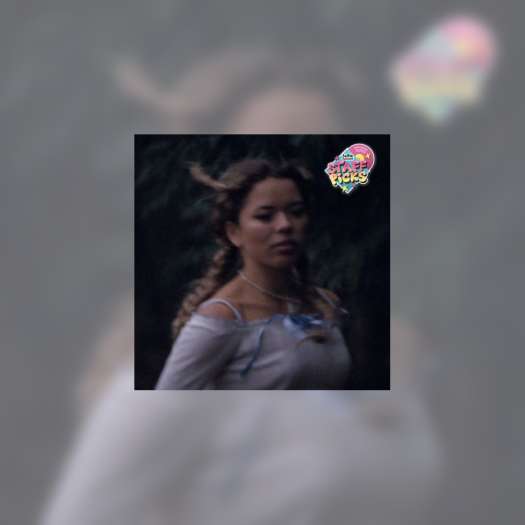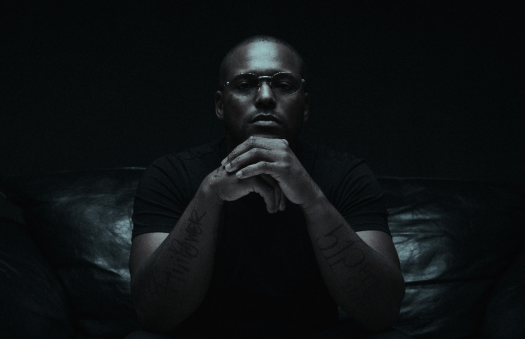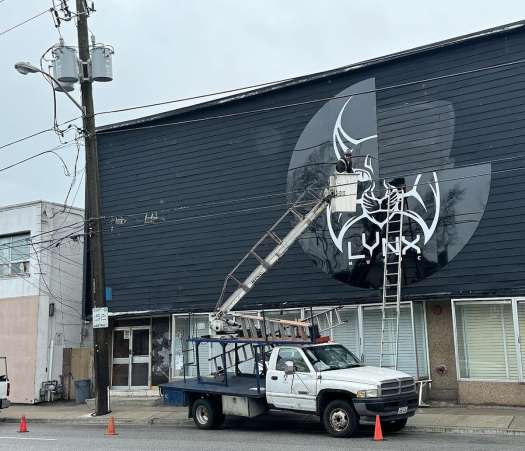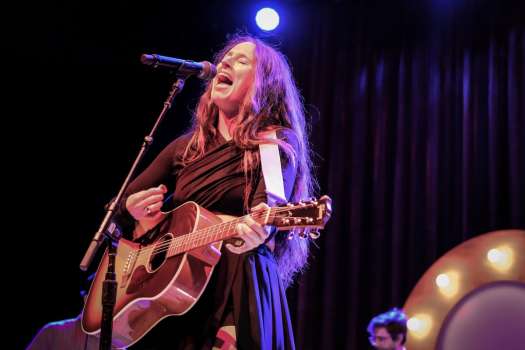Chance the Rapper doesn't care for rules. In fact, defiance has been a recurring theme in his short but burgeoning career. His first mixtape, 10 Day, was the product of a ten-day suspension for marijuana possession during his senior year in high school, and between downloads and streams, earned him nearly 700,000 fans. From then onward, Chance continued to break the rules. This year, the Chicago MC embraced defiance to blaze a new trail in music and subsequently own 2016.
The year was supposed to belong to Kanye West. In January, buzz for the followup to Yeezus was at a fever pitch, and the hip-hop world was beside itself waiting for the album to drop. While The Life of Pablo was ultimately well-received, the project fell short of the expectations West had set: Yeezy promised us a gospel album. Yes, there were vague references to faith and a few clever samples of hymns sprinkled throughout, but in the end, something about Pablo's gospel elements felt cursory and insincere.
In his February 13 performance on Saturday Night Live, West tried his hardest to convince us that he was ushering gospel into hip-hop's mainstream. He decked his choir out in heavenly white, brought Kirk Franklin out for an impromptu sermon and seasoned his empty lyrics with spiritual buzzwords like "God" and "pray" in case we didn't quite grasp that Pablo was some sort of avant-garde gospel project. Yet, despite all of West's pomp and histrionics, it was Chance's humble but heartfelt appearance on "Ultralight Beam" that shone brightest. It was also Chance's writing that stood out on some of Pablo's best tracks, and Chance who added small shreds of legitimacy to the new-age preacher persona West was striving to adopt. We may not have noticed at the time, but Chance was laying a foundation for things to come.
He released his third mixtape, Coloring Book, in May, and it was clear: This was the fresh, gospel-inspired hip-hop album that West tried so hard to create. Ironically, Coloring Book's success lies in the fact that Chance didn't try to make it gospel at all.
Since his debut, he has always stood out from his peers in how effortlessly he embraces different facets of his personality. While many rappers stick to tried-and-true hip-hop tropes, Chance remains fluid, delivering the sum of all of his parts. He's a prep school kid from a middle class family, but he elegantly eschews the backpack rapper label. He's sold drugs, but he doesn't purport to be the next Pablo Escobar. He's a father, a stoner, a Christian and an activist, but he doesn't commit himself to presenting just one aesthetic.
Coloring Book weaves gospel, trap, jazz and even Chicago house seamlessly into one organic bundle. Throughout, Chance remains sincere and fully embraces his vulnerability. He is candid about the joys and the challenges of parenthood ("All We Got" and "Smoke Break," respectively) and he wistfully reflects on the innocence of youth, the strain of adulthood and the pain of loss ("Summer Friends," "Same Drugs"). He basks shamelessly in his happiness ("Angels," "Blessings") — a right that too many young black men are often denied. And yes, he acknowledges his faith with overt gospel and spiritual tones throughout the album. But unlike other artists, Chance doesn't draw an obvious, theatrical line between secular and non-secular themes. He instead approaches each with nuance and finesse, plants his feet firmly on either side and allows his many identities to overlap. He entertains without making a show of himself.
It's the type of project that could only come from Chance. The 23-year-old has long been vocal about his disdain for record labels and his refusal to sign a deal. Forging ahead without label support is a risk, but by remaining steadfast in his independence, Chance gave himself the freedom to push the limits of his creativity and truly chart his own course. With a team of record execs pulling his strings, Chance might have been forced to market himself exclusively as a Christian, stoner or backpack rapper, and his mixtape's charm would have surely been compromised. Instead, Chance's success with Coloring Book proves to the music industry that artists can build momentum with a more varied and balanced narrative. It's okay to do and to be more than one thing.
As he always has, Chance threw a middle finger to dying conventions and released Coloring Book for free. As record labels continue to scramble looking for ways to entice (or force) music lovers to pay for music, Chance instead chose to swim with the current and give music lovers what they want: accessible, quality hip-hop free of charge.
On "Ultralight Beam," he contemplated the ways in which his decisions help and hurt his career: "I hear you gotta sell it to snatch the Grammy / Let's make it free and the bars so hard / That there ain't one gosh darn part you can't tweet." Chance's free releases made him ineligible for much-deserved recognition in the awards circuit and on the charts, but he didn't conform. Instead, he used Coloring Book to bring himself to a point where he could no longer be denied. Whether influenced directly by Coloring Book's success or not, the Recording Academy announced some big changes in June: streaming albums will now be considered for Grammy awards, making Coloring Book the project to watch during nomination season. And Chance made history in 2016 by becoming the first artist to arrive on the Billboard 200 chart without selling a single physical copy. Times are finally changing, and Chance is at the helm of a turning point in music history.
In more ways than one, Coloring Book is a triumph. By remaining true to himself, Chance the Rapper helped to shatter old norms both in hip-hop and in business. His success this year is a testament to his vision and foresight. It pays to colour outside the lines.
The year was supposed to belong to Kanye West. In January, buzz for the followup to Yeezus was at a fever pitch, and the hip-hop world was beside itself waiting for the album to drop. While The Life of Pablo was ultimately well-received, the project fell short of the expectations West had set: Yeezy promised us a gospel album. Yes, there were vague references to faith and a few clever samples of hymns sprinkled throughout, but in the end, something about Pablo's gospel elements felt cursory and insincere.
In his February 13 performance on Saturday Night Live, West tried his hardest to convince us that he was ushering gospel into hip-hop's mainstream. He decked his choir out in heavenly white, brought Kirk Franklin out for an impromptu sermon and seasoned his empty lyrics with spiritual buzzwords like "God" and "pray" in case we didn't quite grasp that Pablo was some sort of avant-garde gospel project. Yet, despite all of West's pomp and histrionics, it was Chance's humble but heartfelt appearance on "Ultralight Beam" that shone brightest. It was also Chance's writing that stood out on some of Pablo's best tracks, and Chance who added small shreds of legitimacy to the new-age preacher persona West was striving to adopt. We may not have noticed at the time, but Chance was laying a foundation for things to come.
He released his third mixtape, Coloring Book, in May, and it was clear: This was the fresh, gospel-inspired hip-hop album that West tried so hard to create. Ironically, Coloring Book's success lies in the fact that Chance didn't try to make it gospel at all.
Since his debut, he has always stood out from his peers in how effortlessly he embraces different facets of his personality. While many rappers stick to tried-and-true hip-hop tropes, Chance remains fluid, delivering the sum of all of his parts. He's a prep school kid from a middle class family, but he elegantly eschews the backpack rapper label. He's sold drugs, but he doesn't purport to be the next Pablo Escobar. He's a father, a stoner, a Christian and an activist, but he doesn't commit himself to presenting just one aesthetic.
Coloring Book weaves gospel, trap, jazz and even Chicago house seamlessly into one organic bundle. Throughout, Chance remains sincere and fully embraces his vulnerability. He is candid about the joys and the challenges of parenthood ("All We Got" and "Smoke Break," respectively) and he wistfully reflects on the innocence of youth, the strain of adulthood and the pain of loss ("Summer Friends," "Same Drugs"). He basks shamelessly in his happiness ("Angels," "Blessings") — a right that too many young black men are often denied. And yes, he acknowledges his faith with overt gospel and spiritual tones throughout the album. But unlike other artists, Chance doesn't draw an obvious, theatrical line between secular and non-secular themes. He instead approaches each with nuance and finesse, plants his feet firmly on either side and allows his many identities to overlap. He entertains without making a show of himself.
It's the type of project that could only come from Chance. The 23-year-old has long been vocal about his disdain for record labels and his refusal to sign a deal. Forging ahead without label support is a risk, but by remaining steadfast in his independence, Chance gave himself the freedom to push the limits of his creativity and truly chart his own course. With a team of record execs pulling his strings, Chance might have been forced to market himself exclusively as a Christian, stoner or backpack rapper, and his mixtape's charm would have surely been compromised. Instead, Chance's success with Coloring Book proves to the music industry that artists can build momentum with a more varied and balanced narrative. It's okay to do and to be more than one thing.
As he always has, Chance threw a middle finger to dying conventions and released Coloring Book for free. As record labels continue to scramble looking for ways to entice (or force) music lovers to pay for music, Chance instead chose to swim with the current and give music lovers what they want: accessible, quality hip-hop free of charge.
On "Ultralight Beam," he contemplated the ways in which his decisions help and hurt his career: "I hear you gotta sell it to snatch the Grammy / Let's make it free and the bars so hard / That there ain't one gosh darn part you can't tweet." Chance's free releases made him ineligible for much-deserved recognition in the awards circuit and on the charts, but he didn't conform. Instead, he used Coloring Book to bring himself to a point where he could no longer be denied. Whether influenced directly by Coloring Book's success or not, the Recording Academy announced some big changes in June: streaming albums will now be considered for Grammy awards, making Coloring Book the project to watch during nomination season. And Chance made history in 2016 by becoming the first artist to arrive on the Billboard 200 chart without selling a single physical copy. Times are finally changing, and Chance is at the helm of a turning point in music history.
In more ways than one, Coloring Book is a triumph. By remaining true to himself, Chance the Rapper helped to shatter old norms both in hip-hop and in business. His success this year is a testament to his vision and foresight. It pays to colour outside the lines.
